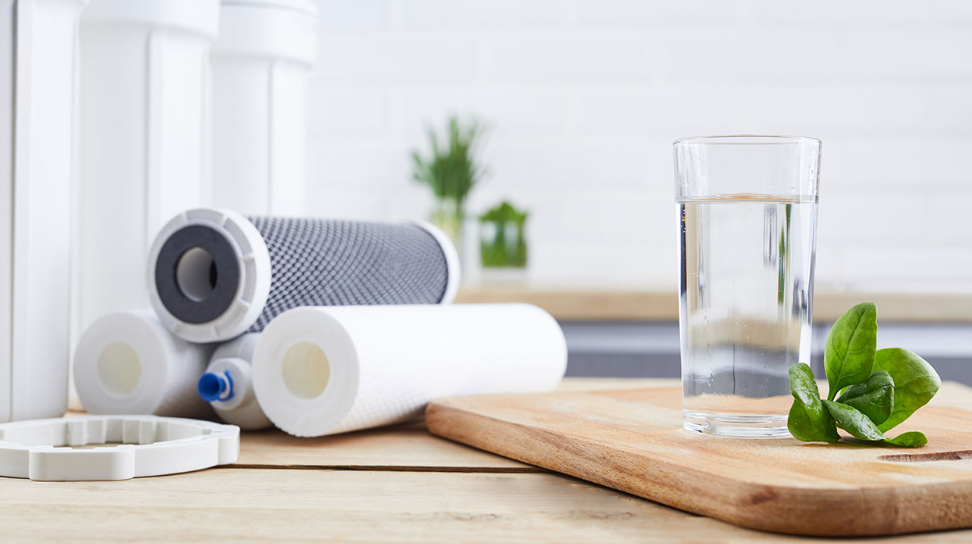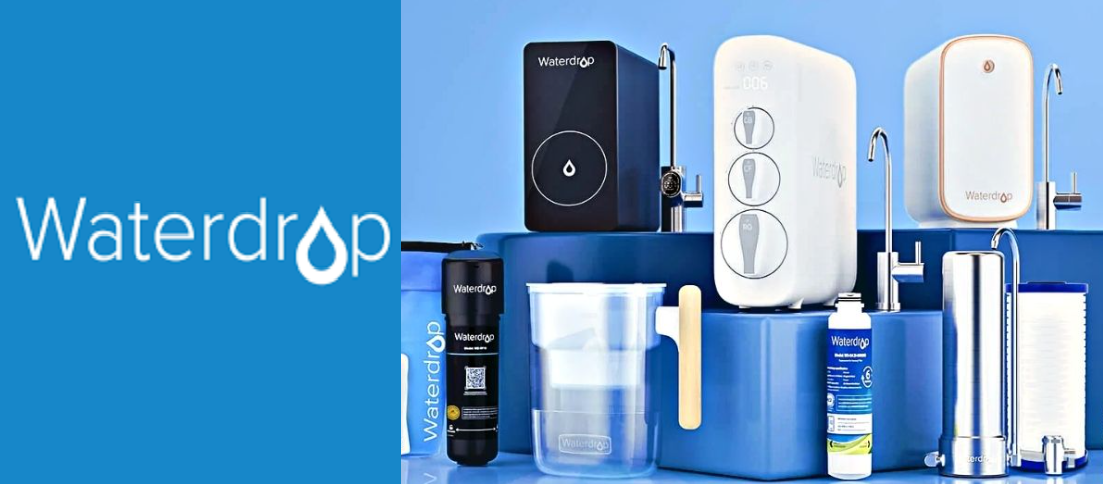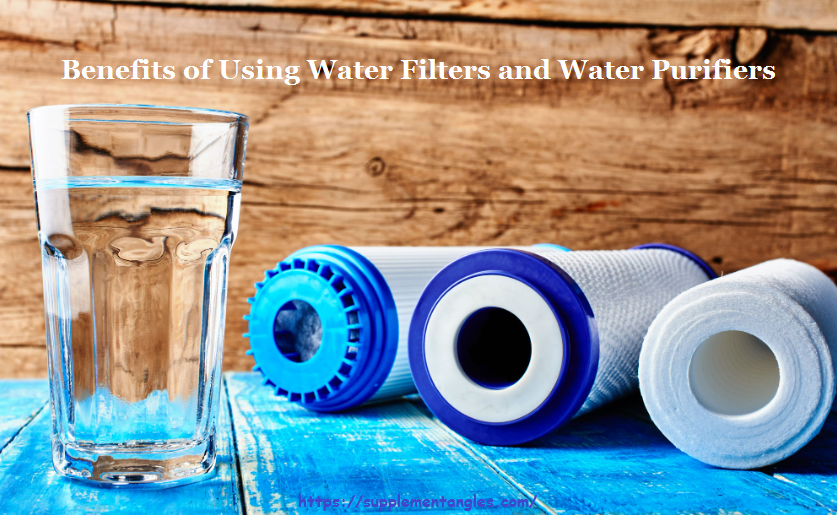Water is a vital resource that we rely on for various daily activities, including drinking, cooking, and cleaning. However, the quality of the water we consume is not always guaranteed. Contaminants like bacteria, chemicals, and impurities can find their way into our water supply, posing potential health risks.
To ensure the safety and purity of the water we consume, many individuals are turning to water filters and purifiers. These devices are designed to remove or reduce impurities, allowing us to enjoy clean and fresh water. Understanding the benefits of using water filters and purifiers, as well as the different types available and how they work, is essential for making informed decisions about water treatment.
In this article, we will delve into the advantages of using water filters and purifiers, explore the various types, and shed light on the technology behind water purification systems. We will also discuss the factors to consider when choosing between a water filter and a water purifier, as well as provide tips on how to maintain and clean these devices. Additionally, we will highlight the importance of regularly testing the quality of your filtered or purified water.
By the end of this article, you will have a comprehensive understanding of water filters and purifiers, empowering you to make the best choice for your water treatment needs and ensuring that you have access to safe and healthy drinking water.

Table of Contents
Water Filters & Water Purifier
Water Filters and Water Purifiers are both used to improve the quality of drinking water by removing impurities and making it safe to consume. Here’s a brief explanation of each:
Water Filters:
Water filters are devices that remove various contaminants from water, such as sediment, chlorine, heavy metals, pesticides, and bacteria.
They work by passing water through a physical barrier or a chemical process to trap or neutralize impurities.
Water filters come in different types, including activated carbon filters, ceramic filters, reverse osmosis filters, and UV filters.
They are generally more affordable than water purifiers, and their effectiveness depends on the type and quality of the filter.
Water Purifiers:
Water purifiers, also known as water purification systems, go a step further than water filters by not only removing impurities but also killing or inactivating bacteria, viruses, and other harmful microorganisms.
Purifiers use advanced techniques like ultraviolet (UV) radiation, reverse osmosis (RO), or water distillation to ensure highly purified water.
Shop Online Now:
- Crystal Quest Water Filters: Whole House Water Filters. Great, clean, and delicious water. Incredibly easy to use.
- SpringWell Water Filtration Systems for the sole purpose of filling a need in the residential water industry.
- Waterdrop Filters: Reverse Osmosis Water Filters & Water Purifier
Benefits of Using Water Filters and Water Purifiers
- Improved taste and odor of water
- Removal of harmful bacteria and viruses
- Reduction of chemical pollutants
- Cost-effective alternative to bottled water
- Convenient and readily available access to clean water
- Health benefits including proper hydration and nutrient absorption
- Environmental impact by reducing plastic waste
- Contributing to a more sustainable future
- Saves money by eliminating the need to buy bottled water
- Environmentally-friendly alternative to single-use plastic bottles
- Saves money by eliminating the need to buy bottled water
- Environmentally-friendly alternative to single-use plastic bottles
- Promotes a healthier lifestyle by encouraging increased water consumption
Different Types of Water Filters and Their Effectiveness
There are various types of water filters available on the market, each designed to remove specific contaminants and impurities from water. The effectiveness of a water filter depends on its design, the type of contaminants it targets, and its maintenance. Here are some common types of water filters and their effectiveness:

Reverse Osmosis (RO) Filters:
Reverse Osmosis (RO) is a water purification process that uses a semi-permeable membrane to remove impurities and contaminants from water. The process works by applying pressure to the water on one side of the membrane, forcing it through while leaving the contaminants behind.
Undersink Filter
An undersink water filter, also known as an under-the-sink or under-counter filter, is a type of water filtration system that is installed beneath the kitchen sink. It is designed to provide clean and filtered water for drinking and cooking purposes.
Countertop filters
Countertop water filters are portable water filtration systems that sit on the kitchen countertop and connect directly to the faucet. These filters are designed to provide convenient and efficient water purification for drinking and cooking.
Wholehouse Filters
Wholehouse filters, also known as whole-house water filtration systems or point-of-entry filters, are comprehensive water treatment systems installed at the main water entry point of a residence. These filters are designed to treat all the water entering the house, providing filtered water to every faucet, shower, appliance, and fixture.
Outdoor Filters
“Outdoor filters” is a broad term that can refer to various types of water filters or filtration systems designed for outdoor use. These filters are typically portable or installed in outdoor settings to provide access to clean and safe drinking water.
- Camping Water Filters:
Provide access to clean drinking water during camping, hiking, and outdoor activities.
- Pool & Spa Filters:
Maintain water clarity and quality in swimming pools and spas.
- RV Filters:
Improve the quality of water used in recreational vehicles (RVs) for drinking, cooking, and showering.
- Garden Filters:
Filter water used for gardening to prevent clogging of irrigation systems and provide clean water to plants.
- Car Wash Filters:
Remove impurities from water used for car washing to prevent water spots and improve the quality of the wash.
Shop Online Now:
- Crystal Quest Water Filters: Whole House Water Filters. Great, clean, and delicious water. Incredibly easy to use.
- SpringWell Water Filtration Systems for the sole purpose of filling a need in the residential water industry.
- Waterdrop Filters: Reverse Osmosis Water Filters & Water Purifier
Considerations for Each Type of Filter:
Water Source Quality:
Consider the specific contaminants or impurities present in the water source you are dealing with.
- Flow Rate: Ensure that the filter can provide an adequate flow rate for the intended use.
- Maintenance: Understand the maintenance requirements, including filter replacement or cleaning.
- Installation: Consider the ease of installation, especially for RV filters, garden filters, and car wash filters.
- Portability: For camping water filters, portability is crucial. Ensure that the filter is lightweight and easy to carry.
- Filter Lifespan: Know how long the filter is expected to last before replacement is necessary.
- Compatibility: Ensure that the filter is compatible with the water systems or appliances it will be used with.
When choosing a filter for a specific application, it’s important to consider the unique requirements and challenges associated with that use case. Each type of filter is designed to address specific concerns and provide clean water tailored to its intended purpose.

Understanding the Technology Behind Water Purification Systems
Water purification systems utilize diverse technologies to ensure the delivery of clean and safe drinking water. Filtration methods, such as activated carbon and reverse osmosis, effectively remove contaminants like chlorine and dissolved solids. Sediment filtration addresses larger particles, while ceramic filters target bacteria and protozoa. Ultraviolet purification eliminates microorganisms by exposing water to UV light.
Water softening technologies, including ion exchange, reduce hardness minerals. Disinfection methods like chlorination and ozonation kill bacteria and neutralize viruses. Advanced technologies like activated alumina defluoridation and nano-filtration offer specialized solutions. Combining these technologies ensures comprehensive water treatment, catering to specific water quality challenges and delivering purified water for various applications.
Shop Online Now:
- Crystal Quest Water Filters: Whole House Water Filters. Great, clean, and delicious water. Incredibly easy to use.
- SpringWell Water Filtration Systems for the sole purpose of filling a need in the residential water industry.
- Waterdrop Filters: Reverse Osmosis Water Filters & Water Purifier
Factors to Consider When Choosing Between a Water Filter and a Water Purifier
1. Water Quality:
Filter: Ideal for improving taste and removing larger particles.
Purifier: Necessary for addressing microbiological contaminants like bacteria and viruses.
2. Contaminants:
Filter: Effective against sediment, chlorine, and some chemicals.
Purifier: Targets a broader range, including microorganisms and certain chemicals.
3. Filtration Method:
Filter: Relies on physical barriers or adsorption.
Purifier: Uses technologies like UV, reverse osmosis, or chemical disinfection.
4. Intended Use:
Filter: Suited for general household use.
Purifier: Essential for travel to regions with questionable water sources.
5. Maintenance and Cost:
Filter: Requires less maintenance and is cost-effective.
Purifier: May have higher ongoing costs and maintenance needs.
6. Water Flow and Convenience:
Filter: Offers higher flow rates and easier installation.
Purifier: May have slower flow rates and require more attention.
7. Environmental Impact:
Filter: Considered more environmentally friendly.
Purifier: Can have a larger environmental footprint.
8. Specific Use Cases:
Filter: Convenient for daily household use.
Purifier: Essential in emergency situations or travel to unsafe areas.
Considering these factors ensures that your choice between a water filter and a water purifier aligns with your water quality concerns and intended applications.
Shop Online Now:
- Crystal Quest Water Filters: Whole House Water Filters. Great, clean, and delicious water. Incredibly easy to use.
- SpringWell Water Filtration Systems for the sole purpose of filling a need in the residential water industry.
- Waterdrop Filters: Reverse Osmosis Water Filters & Water Purifier
Steps to Maintain and Clean Your Water Filter or Water Purifier
General Maintenance:
1. Read the Manufacturer’s Instructions:
Always follow the specific maintenance guidelines provided by the manufacturer.
2. Check the Filter Replacement Schedule:
Be aware of the recommended replacement schedule for filter cartridges or purification elements.
3. Inspect for Leaks:
Regularly check for any signs of leaks or damage in the system. Address issues promptly.
4. Monitor Water Flow:
If you notice a decrease in water flow, it may indicate a clogged filter. Check and address accordingly.
Cleaning Steps For Water Filters:
- Turn Off Water Supply: Before cleaning, turn off the water supply to the filter to avoid accidental spills.
- Remove and Dispose of Old Filters: If using replaceable filter cartridges, follow the manufacturer’s instructions to safely remove and dispose of old filters.
- Clean Filter Housing: Wipe down the filter housing with a damp cloth to remove any dust or debris.
- Inspect O-Rings: Check the O-rings or seals for signs of wear or damage. Lubricate them if necessary using food-grade silicone grease.
- Install New Filters: Install new filter cartridges according to the manufacturer’s instructions. Ensure proper alignment and sealing.
- Flush the System: Run water through the system for a few minutes to flush out any air bubbles and residual particles.
Cleaning Steps For Water Purifiers:
- Turn Off Power: If your purifier has a power source, turn it off before cleaning.
- Clean External Parts: Wipe down the external parts of the purifier, including the housing, with a damp cloth.
- UV Purifiers: Check UV Lamp: For UV purifiers, check the UV lamp for signs of wear or diminished effectiveness. Replace if necessary.
- Reverse Osmosis (RO) Systems – Sanitize and Replace Membrane: Periodically sanitize the RO membrane according to the manufacturer’s instructions. Replace if needed.
- Clean Water Reservoir: If your system has a water reservoir, clean it regularly to prevent mold or bacterial growth.
Additional Tips:
- Regularly Test Water Quality:Periodically test your water to ensure the system is effectively removing contaminants.
- Keep Records: Maintain a record of filter replacement dates and any maintenance performed.
- Professional Servicing: For complex systems or if you’re unsure about maintenance tasks, consider professional servicing.
- Follow Local Water Regulations: Be aware of and follow any local regulations regarding water treatment and purification.
By following these steps and maintaining a regular schedule for cleaning and replacement, you can prolong the life of your water filter or purifier and ensure consistently high water quality.
How to Test the Quality of Your Filtered or Purified Water
Water Testing Kits:
Use water testing kits available commercially to assess parameters like pH, chlorine, hardness, and contaminants.
1. Professional Laboratory Testing:
Send water samples to a certified laboratory for a comprehensive analysis, especially for contaminants not easily detected at home.
2. Taste and Odor:
Evaluate the taste and odor of the water. Unpleasant smells or tastes may indicate residual impurities.
3. Visual Inspection:
Visually inspect the water for clarity and the presence of particles or sediment.
4. Microbial Testing:
Conduct microbial testing, especially if using a water purifier, to ensure the removal of bacteria and viruses.
Regularly testing your filtered or purified water helps ensure the system is effectively removing contaminants and delivering safe, high-quality water.
Best Water Filters and Purifiers you might consider for use:
Crystal Quest Water Filters:

Discover excellence in water filtration with Crystal Quest Water Filters. Explore the range of innovative solutions, including Whole House Water Filters, ensuring exceptional purity for great-tasting, clean, and refreshing water throughout your home. Transform your water experience with Crystal Quest.
Waterdrop Filters:

Discover water at its purest with Waterdrop Filters. Advanced filtration systems are designed to deliver clean, crisp, and refreshing water. Explore a range of solutions for home and beyond, ensuring every drop meets the highest standards of quality. Experience the difference with Waterdrop Filters.
SpringWell Water Filtration Systems:

Elevate your water quality with SpringWell Water Filtration Systems. The cutting-edge solutions ensure pristine water for your home, offering a range of filtration systems tailored to your needs. Experience the clarity, taste, and health benefits of pure water with SpringWell.
Final Words
When choosing a water filter, it’s essential to consider your specific water quality issues, the contaminants you want to target, the flow rate of the system, and maintenance requirements. Regular maintenance and replacement of filter elements are crucial for ensuring continued effectiveness. Additionally, some filters may be more effective when used in combination to address a broader range of contaminants.
Shop Online Now:
- Crystal Quest Water Filters: Whole House Water Filters. Great, clean, and delicious water. Incredibly easy to use.
- SpringWell Water Filtration Systems for the sole purpose of filling a need in the residential water industry.
- Waterdrop Filters: Reverse Osmosis Water Filters & Water Purifier
Read More>>>> Best Traditional Gym Bags for Anyone 2023!


